Are you looking for Credit Cards That Pull TransUnion? If Yes, You have stumbled at the right place.
Your TransUnion credit score is Good, likely why you are looking into “which credit cards use TransUnion.” Credit card applicants who think their TransUnion score will enhance their approval chances often use this method.
Note: Credit Card issuers rarely reveal which credit bureaus they consult and may not exclusively use TransUnion to assess your credit.
Let’s understand with an example. Just as a teacher with a large classroom can only give undivided attention to some students at some moments, they rely on a system of group leaders and helpers to report back on the class’s progress and any issues that arise. This system allows the teacher to comprehensively view classroom dynamics and student needs without being overwhelmed by omnipresence.
Similarly, consumer credit bureaus face the challenge of monitoring millions of financial activities. They cannot actively seek out credit information. Instead, they depend on creditors and lenders to report this data to them.
However, not all creditors report to all three major credit bureaus, leading to variations in the information each bureau has on file. Consequently, when future creditors or financial institutions need to assess someone’s creditworthiness, they may choose which bureau’s report (or reports) to consider, knowing that each might provide a slightly different perspective on the individual’s financial history.
If your are having a bad credit score and want a credit card, Check Our No Credit Check Credit Cards With Instant Approval complete guide and get you credit card today.
Credit Cards That Pull TransUnion
Table of Contents
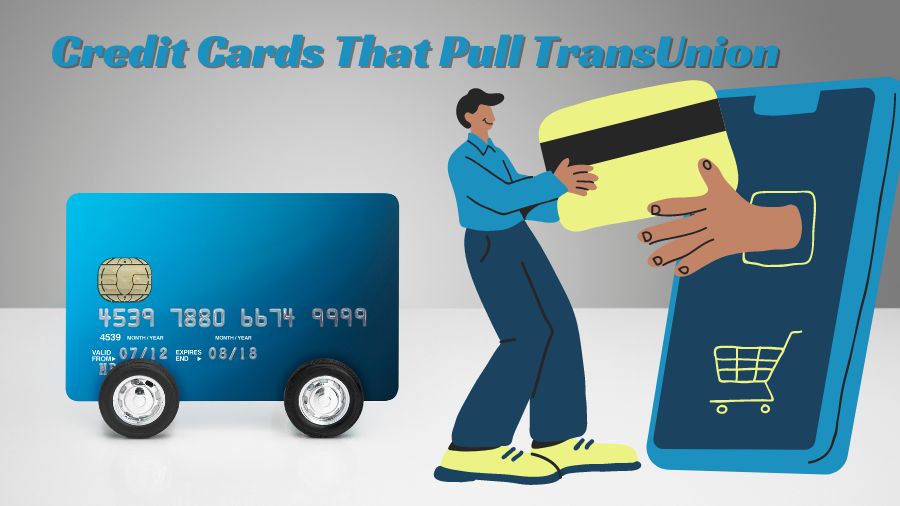
| Credit Card | Rewards | Annual Fee | Other Benefits | Details |
|---|---|---|---|---|
| Citi Premier Card | Points on travel, dining, gas | Yes | Transfer to airlines, annual hotel savings | Check Now |
| Chase Sapphire Reserve® | Points on travel, dining | $550 | $300 travel credit, lounge access, comprehensive insurance | Check Now |
| Chase Freedom® Flex Card | Cash back in rotating categories, travel, dining | No | Various redemption options, protections | Check Now |
| Capital One Quicksilver Cash Rewards | 1.5% cash back on all purchases | No | Simple redemption, no foreign transaction fees | Check Now |
| Discover it® Cash Back Card | Cash back in rotating categories | No | U.S.-based customer service, flexible redemption | Check Now |
| Citi® Double Cash Card | 2% cash back on purchases | No | Simple rewards structure, flexible redemption | Check Now |
Understanding how credit bureaus work when applying for a credit card is important. These bureaus, like TransUnion, collect and maintain consumer credit information lenders use to determine your creditworthiness.
If you’re applying for a credit card, it’s important to know what credit bureau the card issuer will use. Some credit card issuers use multiple bureaus; others use TransUnion exclusively. We are are Writing this article about the Credit Cards That Pull TransUnion for Approval. So, Our focus is to provide you the all the info related the TransUnion.
It’s difficult to tell which credit bureau a card issuer pulls information from. However, some patterns and common practices will help you decide where to apply. And $500 credit card limit no deposit will help you to improve your credit score.
First, let’s understand what TransUnion is.
What is TransUnion?
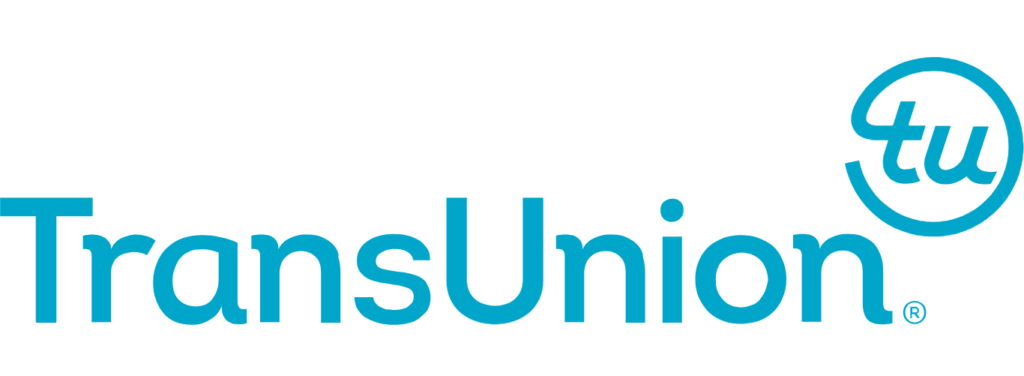
TransUnion is one of three major credit bureaus in the United States, along with Equifax and Experian. It’s been around for over 50 years and is well-known as a trusted source of credit information.
The TransUnion credit bureau collects and maintains a lot of consumer credit information. It includes information about credit cards, loans, mortgages, and other financial accounts. Credit reports aggregate all this data, telling you how well you do financially.
TransUnion collects data from banks, credit card companies, and lenders to ensure accuracy and reliability. TransUnion gives credit card issuers a detailed report with information on the person’s payment history, credit utilization, length of credit history, public records, and more when they pull information from them.
The TransUnion company doesn’t just offer credit reports; it also offers credit monitoring so you know what’s going on with your credit. You can manage your credit effectively and protect your identity from fraud and unauthorized use with their tools and resources.
The TransUnion credit agency helps lenders evaluate creditworthiness by providing valuable information. They use it for credit card approvals, setting credit limits, and calculating interest rates. Consumers can make informed financial decisions and improve their credit profiles by understanding how TransUnion works and what it provides to lenders.
What Credit Cards That Pull TransUnion Credit Reports?
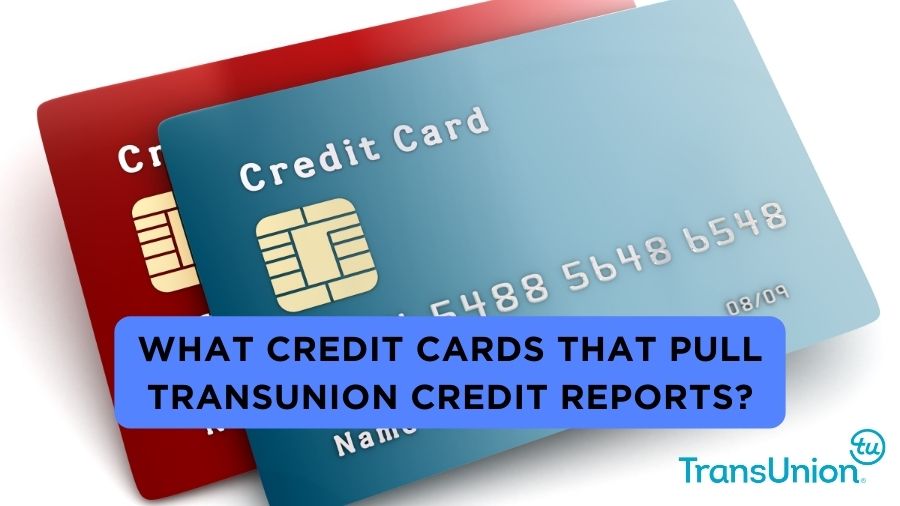
Getting credit reports from a financial institution or credit card company is almost impossible. A personal finance expert and founder and lead at Life and My Finances, Derek Sall, says you could use any of the three major credit bureaus at any time.
“Every credit card company changes it up now and then. It’s in their interest anyway.” People can’t necessarily game the system, but if they know American Express pulls from Experian and that’s where their best score is, they’ll apply with American Express (not Capital One, which might discover their lower score via TransUnion, for example).
Sall says, however, that card companies usually pull one credit report at a time.
Typically, companies only pull your credit from one of the bureaus. In some cases, if there’s a red flag on one that’s putting you on edge, they’ll pull your credit from another issuer just to be sure. That doesn’t happen often, but it does. But it’s rare for an issuer to pull your credit from all three.”
However, Capital One, Barclaycard, U.S. Bank, and Fifth Third Bank might pull your TransUnion report and some of them are give $5,000 credit card instant approval.
Now that we know more about TransUnion and its role as a credit bureau let’s get into which credit cards use it. Here are some credit cards that pull TransUnion info a lot:
6 Best Credit Cards That Pull TransUnion for Approval
Citi Premier Card
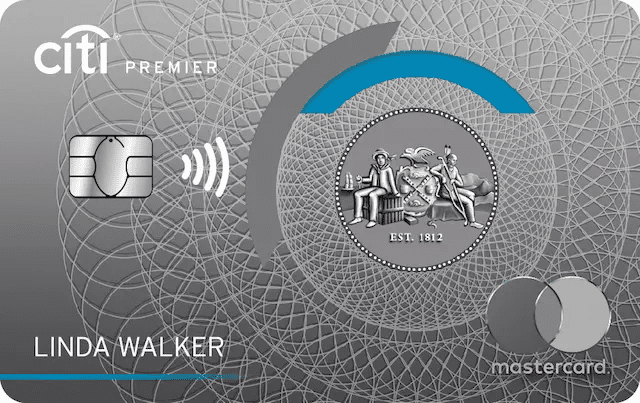
A popular credit cards that pull TransUnion data is the Citi Premier Card. While earning points, users can redeem them for travel, merchandise, and gift certificates.
A Citi Premier credit card offers a 0% introductory APR for the first 18 months on balance transfers and purchases, which makes it an excellent choice for people who want to save on interest costs. As a no-fee credit card, the Citi Premier Card is also free of annual fees.
Citi Premier Card Pros and Cons
| Pros | Cons |
|---|---|
| Welcome Bonus: Attractive initial points offer. | Annual Fee: Has an annual fee. |
| High Earning Rates: Earn more points on travel, dining, and gas. | Complex Rewards: Maximizing benefits requires tracking categories. |
| Flexible Points Redemption: Use points for various rewards. | Foreign Transaction Fees: May apply to some versions of the card. |
| No Foreign Transaction Fees: No extra charges on international purchases. | High APR: Higher interest costs if balances are carried. |
| Transfer to Airlines: Points can be transferred to airline partners. | Limited Luxury Travel Perks: Fewer high-end travel benefits. |
| Annual Hotel Savings: Get savings on hotel bookings once a year. |
Chase Sapphire Reserve®
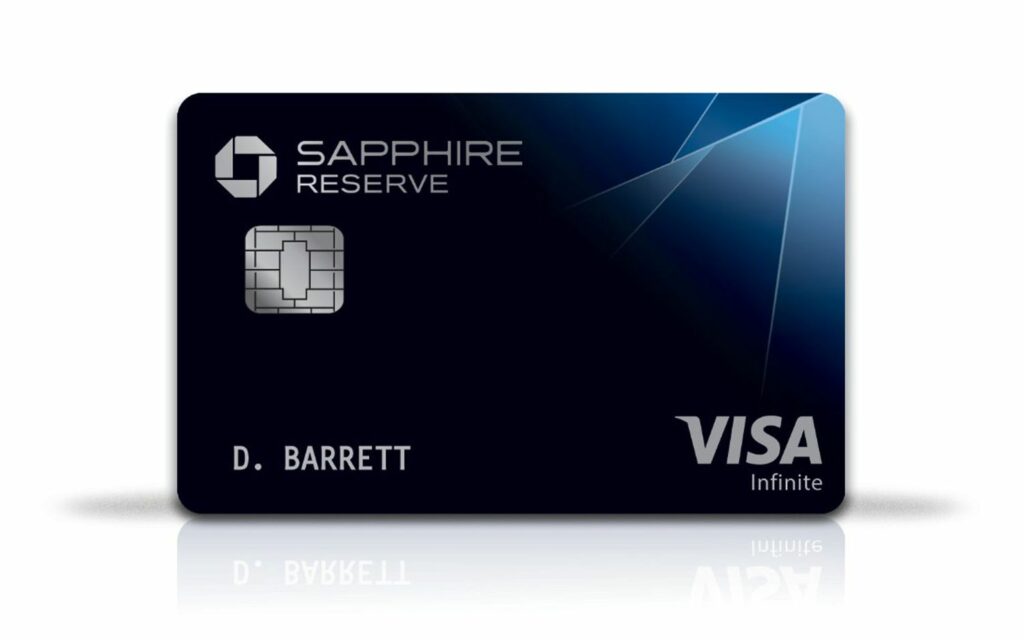
When you purchase travel through Chase Ultimate Rewards®, you get 10x points on hotels and car rentals after your first $300 spent annually.
Whenever you make a purchase, you’ll receive a statement credit of up to $300. Chase Sapphire Reserve has a variable APR between 21.49% and 28.49% and a $550 annual fee, plus $75 for each additional cardholder.
Chase Sapphire Reserve® Pros and Cons
| Pros | Cons |
|---|---|
| Generous Welcome Bonus: Offers a substantial bonus points after meeting initial spending requirements. | High Annual Fee: Comes with a significant annual fee. |
| High Reward Rates: Earns extensive points on travel and dining worldwide. | High Credit Requirements: Requires excellent credit for approval. |
| Comprehensive Travel Insurance: Includes trip cancellation/interruption insurance, auto rental collision damage waiver, and more. | Cost Justification: Benefits need to be used extensively to justify the annual fee. |
| $300 Annual Travel Credit: Automatically applied to travel purchases, effectively reducing the annual fee. | Reward Redemption Complexity: Maximizing value requires strategic redemption of points. |
| Priority Pass™ Select Membership: Access to over 1,000 airport lounges worldwide. | Fewer Options for Low-Spenders: Not ideal for those who spend less on travel and dining. |
| No Foreign Transaction Fees: Makes it ideal for international travel. | Balancing Multiple Premium Cards: May be redundant if you already hold similar premium cards. |
| Flexible Redemption Options: Points can be redeemed through the Chase Ultimate Rewards® portal or transferred to numerous airline and hotel partners. | |
| Luxury Travel Benefits: Includes benefits like a Global Entry or TSA Pre✓® fee credit. |
Chase Freedom® Flex Card
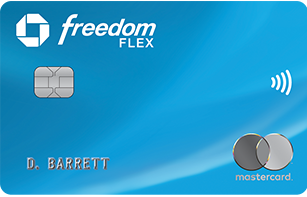
If you’re looking for a cashback card that uses TransUnion, the Chase Freedom® Flex Card is a great option. With it, you can earn 5% cash back on up to $1,500 in combined purchases each quarter.
Also, you’ll get 1% cash back on all other purchases. This card doesn’t charge an annual fee, so it’s perfect for budget-conscious people.
Consider the Capital One VentureOne Rewards Credit Card if you want a travel rewards card with TransUnion.
Chase Freedom® Flex Card Pros and Cons
| Pros | Cons |
|---|---|
| No Annual Fee: No cost to keep the card year after year. | Foreign Transaction Fees: Charges fees on international transactions. |
| Cash Back Rewards: Earns high cash back in rotating quarterly categories upon activation, on travel booked through Chase, at restaurants, and on drugstore purchases. | Rotating Categories: Requires activation and tracking of quarterly bonus categories to maximize rewards. |
| Welcome Bonus: Attractive cash bonus after meeting initial spending requirements. | Spending Caps: Bonus cash back on rotating categories is capped at $1,500 in purchases each quarter. |
| 0% Intro APR: Offers an introductory 0% APR period on purchases and balance transfers. | Balance Transfer Fee: Charges a fee for balance transfers. |
| Various Redemption Options: Cash back can be redeemed for statement credits, direct deposits, gift cards, and more. | Credit Requirement: Requires good to excellent credit for approval. |
| Added Protections: Includes purchase protection, extended warranty, and trip cancellation/interruption insurance. | |
| Chase Ultimate Rewards® Program: Cash back rewards are versatile and can be transferred to other Chase cards with higher redemption value. |
Capital One Quicksilver Cash Rewards Credit Card
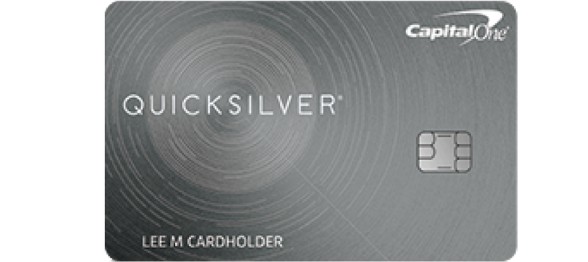
Capital One Quicksilver Cash Rewards Credit Card is a great option for those looking to earn cash back on their everyday purchases. And also this Capital One Credit Cards That Pull TransUnion Data.
With this credit card, you will earn a maximum of 1.5% cashback on all purchases and a $150 sign-up bonus after spending $500 in your first three months. This is a simple cashback credit card with no annual fee, so it’s a good choice for anyone looking for one.
Capital One Quicksilver Cash Rewards Credit Card Pros and Cons
| Pros | Cons |
|---|---|
| Cash Back Rewards: Earn unlimited 1.5% cash back on every purchase, every day. | No Bonus Categories: Lacks higher cash back rates on specific categories. |
| Welcome Bonus: One-time cash bonus after meeting initial spending requirements. | Other Cards Offer Higher Rewards: Some cards offer greater rewards on specific categories. |
| No Annual Fee: No cost for card membership. | Simplicity Over Perks: Fewer luxury perks compared to premium cards. |
| 0% Intro APR: Offers an introductory 0% APR on purchases and balance transfers for a set period. | Good to Excellent Credit Required: Not accessible to those with lower credit scores. |
| No Foreign Transaction Fees: Ideal for international travel. | |
| Simple Redemption: Cash back does not expire for the life of the account and there’s no minimum to redeem. | |
| Flexible Rewards: Can redeem cash back for any amount at any time. | |
| Wide Acceptance: Issued by Visa or Mastercard, ensuring global acceptance. |
Discover it® Cash Back Card
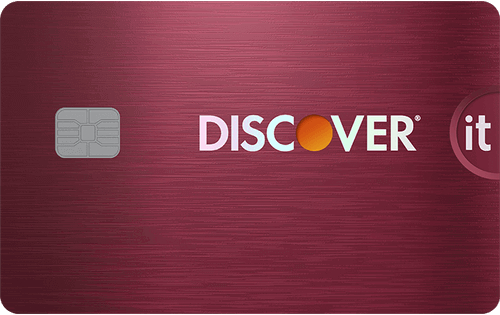
Your Discover it® Cash Back Card gives you 5% cash back every quarter on grocery store, restaurant, and gas station purchases, plus 1% on all other purchases.
You’ll also receive a dollar-for-dollar match on all the cash back you’ve earned automatically at the end of the first year. Discover it® also a credit cards with $2,000 limit guaranteed approval.
With the Discover it® Cash Back Card, you get a variable APR of 16.49% for the first 15 months and a 0% intro APR after that.
Discover it® Cash Back Card Pros and Cons
| Pros | Cons |
|---|---|
| Cash Back Rewards: High cash back in rotating quarterly categories upon activation. | Rotating Categories: Requires activation and planning to maximize cash back. |
| Cashback Match: Matches all cash back at the end of the first year for new cardmembers. | Spending Caps: $1,500 quarterly limit on bonus category cash back. |
| No Annual Fee: Cost-effective for cardholders. | Quarterly Activation: Must remember to activate categories each quarter. |
| 0% Intro APR: Introductory rate on purchases and balance transfers. | Acceptance Abroad: Limited international acceptance compared to Visa/Mastercard. |
| Flexible Redemption: Cash back can be redeemed at any amount, anytime. | Credit Requirement: Good to excellent credit needed for approval. |
| U.S.-Based Customer Service: Accessible and helpful customer service. | Foreign Transaction Fees: Charges on purchases made outside the U.S. |
| No Foreign Transaction Fees: Ideal for domestic use without extra charges on foreign transactions. |
Citi® Double Cash Card
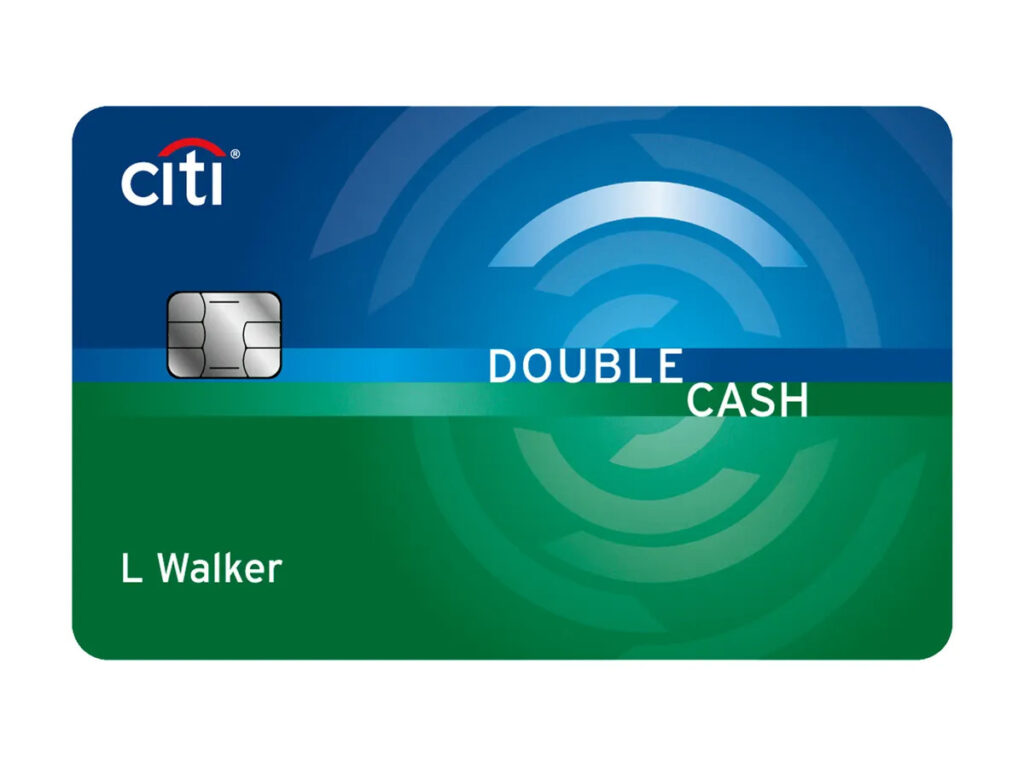
Another Credit cards that Pull TransUnion data is Citi® Double Cash Card. You can earn 2% cash back on purchases with the Citi® Double Cash Card. New account holders can also use a 0% introductory APR offer for 18 months.
Cardholders get all the usual benefits: free liability on unauthorized changes, 24/7 fraud protection, and identity theft protection.
Citi® Double Cash Card Pros and Cons
| Pros | Cons |
|---|---|
| Up to 2% Cash Back: Earn 1% when you buy plus 1% as you pay for those purchases. | No Welcome Bonus: Lacks an initial signup bonus which is common with many other credit cards. |
| No Annual Fee: No cost to keep the card year after year. | Foreign Transaction Fees: Charges a fee for transactions made abroad. |
| Flexible Redemption Options: Redeem cash back for checks, statement credits, or direct deposits once you’ve earned $25. | No Bonus Categories: Does not offer higher cash back rates on specific purchase categories. |
| 0% Intro APR on Balance Transfers: Offers an introductory 0% APR on balance transfers for a specified period. | Balance Transfer Fee: Imposes a fee on balance transfers, especially after the introductory period. |
| Simple Rewards Structure: Easy to understand and manage without tracking rotating categories or spending caps. | Credit Requirement: Requires good to excellent credit for approval. |
| Minimal Additional Perks: Compared to other cards, it offers fewer perks like travel or shopping protections. |
Store Credit Cards That Pull TransUnion?
Different department store credit cards are used to establish credit for customers, depending on their preferences.
Here are some department store Credit Cards That Pull TransUnion credit reports:
- The Home Depot Consumer Credit Card
- Capital One Walmart Rewards Mastercard
- Capital One Walmart Rewards Mastercard
Benefits of Using Credit Cards that Report to TransUnion
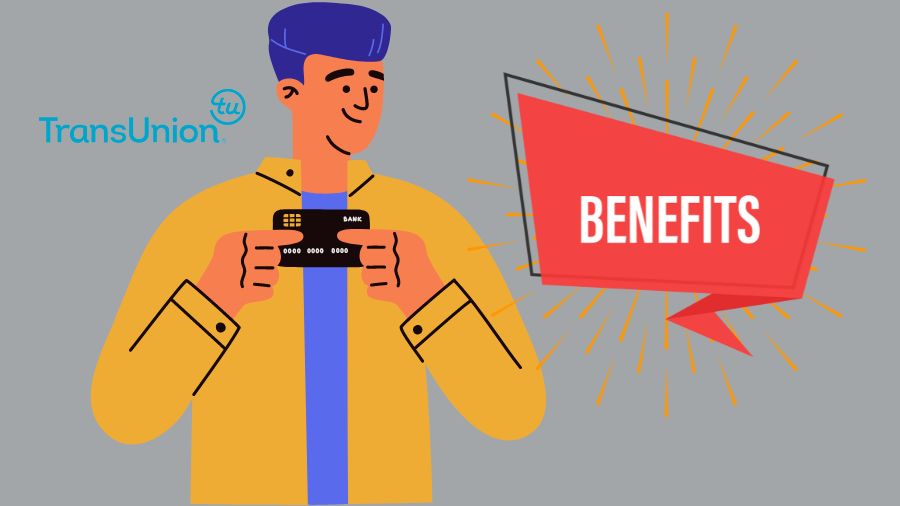
Credit cards that pull TransUnion reports can help you build or improve your credit profile in several ways. Here are some of the most significant benefits:
Establishing Credit History: When you don’t have much credit history, you can start building your credit profile using a credit card that reports to TransUnion . To prove their creditworthiness, they must make timely payments and manage their credit responsibly.
Improving Credit Score: Credit cards that report to TransUnion and make timely payments can improve your credit score. Payment history plays a huge role in credit score calculations, and positive payment behavior will increase your creditworthiness.
Enhancing Credit Mix: Lenders look for a diversified credit mix when assessing creditworthiness. It’s easy to improve your credit mix by adding a revolving credit account to your TransUnion credit profile, which can complement other types of credit, such as loans or mortgages.
Increasing Future Financing Options: You can get more financing with a good credit score and history. It doesn’t matter if you’re looking for a mortgage, a car loan, or another credit card; having a good credit profile through credit cards that report to TransUnion can help.
Access to Better Credit Card Offers: You can qualify for credit cards with better features as your credit profile improves, including lower interest rates, higher credit limits, and more attractive rewards. Credit card issuers tend to target individuals with good credit profiles by using credit cards responsibly and making timely payments.
Monitoring Credit Health: Keeping an eye on your credit health is easy if you regularly review your TransUnion credit report. Inaccuracies can negatively impact your credit if you identify them, so you can take steps to rectify them and protect your creditworthiness. Monitoring your credit allows you to spot errors, unauthorized accounts, and fraudulent activity.
Potential for Credit Limit Increases: With credit cards that report to TransUnion , you may be more likely to receive a credit limit increase if you build a positive credit history. Your credit utilization ratio, a key factor in credit scoring models, can be positively affected by higher credit limits, allowing you more flexibility in managing your expenses.
Building Trust with Lenders: Maintaining responsible credit behavior and using credit cards that report to TransUnion can help you build trust with lenders. When applying for larger loans or negotiating better terms, lenders will see that you have handled credit responsibly in the past, which can be beneficial.
It’s important to use credit cards that Pull TransUnion data, as they help build credit, improve financial prospects, and increase access to credit in the future.
Why do Credit Scores Vary?
Your credit score should be the same across your three credit reports. There are a few reasons why your credit score can differ. First, credit bureaus may score your credit differently. Second, only some creditors report to all credit bureaus.
For example, TransUnion might have a different credit score than another credit bureau because Wells Fargo credit cards don’t contribute to TransUnion’s credit score. Different creditors report to the bureaus at different times, so your scores also vary.
However, creditors and other lenders consider each of the three credit bureaus to be a reliable credit score, even if the scores vary slightly between them. If you have a decent credit score, minor variations should be fine with your ability to get credit cards.
How to Check Which Credit Bureau Is Pulled?

You should know which credit bureau the issuer uses when applying for a new credit card. Although some issuers may not disclose this information upfront, there are a few ways to find out that which Credit Cards That Pull TransUnion data or other bureau:
Contact the Card Issuer: You can easily determine if your credit card issuer assesses your credit by contacting their customer service department directly. They should be able to provide you with the necessary information and answer questions regarding their credit assessment procedure.
Read the Credit Card Terms and Conditions: The terms and conditions of your credit card should be carefully read. The issuer may mention the particular credit bureau they use to pull information. Look for keywords like “credit bureau” or “credit reporting agency” to learn more.
Research Online: Users of credit cards often share their experiences and mention which credit bureaus were pulled when they applied for a particular credit card in online credit card forums, websites, and blogs. It is important to gather information from various sources to understand these experiences better since they are subjective.
Use Credit Monitoring Services: Check with your credit monitoring service if they provide information on which credit bureaus are being consulted when applying for credit cards. You can track and manage your credit information more effectively with some services that provide this information as part of their monitoring features.
While the above methods can provide valuable insights, verifying the information by contacting your credit card company directly is always a good idea. Credit card issuers may occasionally change their practices and pull information from different bureaus. We also mentioned and listed the Credit Cards That Pull TransUnion data for Approval.
Your credit reports from that particular bureau can be more closely monitored if you know which credit bureau is being used. It is important to review your credit reports regularly to ensure that the information is accurate and that any discrepancies or errors that might affect your creditworthiness can be identified.
Now, let’s consider some factors to consider when choosing a credit card.
Factors to Consider When Choosing a Credit Card
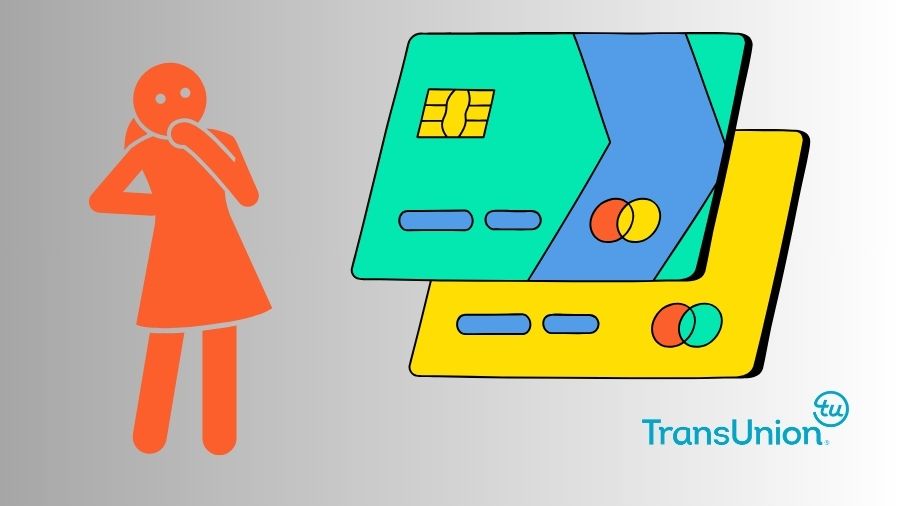
Your financial well-being can be greatly impacted by choosing the right credit card. Consider several factors when choosing a Credit Cards That Pull TransUnion for approval since many options are available. The following are some of the key factors to consider:
Rewards and Benefits: Various credit cards offer rewards and benefits, but some provide cashback on purchases, while others offer travel rewards, points for specific retailers, or discounts. Consider your spending habits and lifestyle if you want a credit card that aligns with your preferences and offers the most valuable rewards.
Annual Fees: While some credit cards charge an annual fee to use them, weigh the value of those rewards and benefits against the cost of the fee. Cards with annual fees often offer more substantial rewards and perks. No-fee cards might be a better option if you use their benefits sparingly.
Interest Rates: Carrying a balance from month to month can significantly affect your credit card balance, so compare interest rates among different cards and choose the card with the lowest interest rate.
Introductory Offers: It may benefit your finances and spending habits to consider credit cards that offer 0% interest for a set period or bonus rewards after spending a certain amount within your first few months.
Credit Limit: A credit limit determines how much money you can borrow on the card. If you need a higher credit limit for your anticipated expenses, look for cards with higher limits and those that let you increase the credit limit at any time.
Fees and Penalties: Be careful of any fees associated with the card, including late payment fees, foreign transaction fees, and balance transfer fees. Choose a card with fees that reflect your financial habits and travel plans to avoid surprises.
Customer Service: Find out how responsive the issuer is, how supportive it is, and how the dispute resolution process works. Look for feedback from current cardholders. The quality of customer service you receive can make a huge difference if you run into any problems or have questions.
Choosing the right credit card depends on your financial habits, spending patterns, and goals. Consider how you intend to use the card, your repayment strategy, and what benefits are most important when evaluating credit cards. You can achieve your financial goals and build a positive credit history by carefully considering these factors when choosing a credit card.
FAQs for Credit Cards That Pull TransUnion for Approval
What Banks Use TransUnion for Credit Reports and Scores?
A bank will usually obtain your credit report and score from one or more of the three major credit bureaus – Experian, Equifax, and TransUnion – to conduct this evaluation. Some major banks that use TransUnion include Bank of America, Wells Fargo, Chase, Citibank, and U.S. Bank.
Credit cards that use TransUnion and Equifax for bad credit?
The Capital One Platinum Credit Card is known to use TransUnion and Equifax for credit checks often and is accessible to individuals with bad credit.
Are there specific Credit Cards That Pull TransUnion?
Even though TransUnion may be the preferred credit bureau among credit card issuers, they can pull information from various credit bureaus or use a different bureau for every application.
Which Business Credit Cards Report to TransUnion?
Barclays and Capital One are examples of issuers with policies for reporting business credit card activity to TransUnion, especially when the account is not in good standing or for specific products opened before certain dates. Capital One, for example, changed its reporting policy so that new accounts opened after October 20, 2020, do not report to personal credit under normal circumstances.
Is It Possible to Build Credit Only With TransUnion Data?
TransUnion is only one of the three major credit bureaus considered by lenders and creditors when determining credit scores, so maintaining a good credit profile requires notifying all three agencies.
Conclusion
It would help if you considered several factors when selecting a Credit Cards That Pull TransUnion, including rewards, fees, interest rates, and credit limits. In addition to providing valuable insight into the application process, understanding which credit bureaus a card issuer pulls from can help you monitor your credit effectively.
The purpose of this article is to explain to you why it is crucial to know which credit bureau is used when applying for a credit card. Besides exploring TransUnion’s role in the credit industry, we also provided a list of credit cards whose information is frequently retrieved from TransUnion.







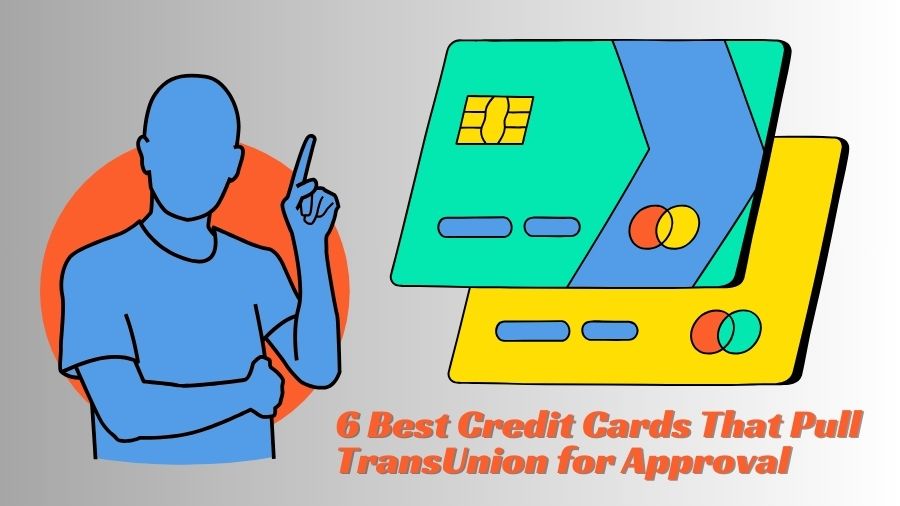









![Federal Employee Payroll Deduction Loan No Credit Check [Explained]](https://shasun.com/wp-content/uploads/2024/03/Federal-Employee-Payroll-Deduction-Loan-No-Credit-Check-Explained-74x55.jpg)

Add Comment